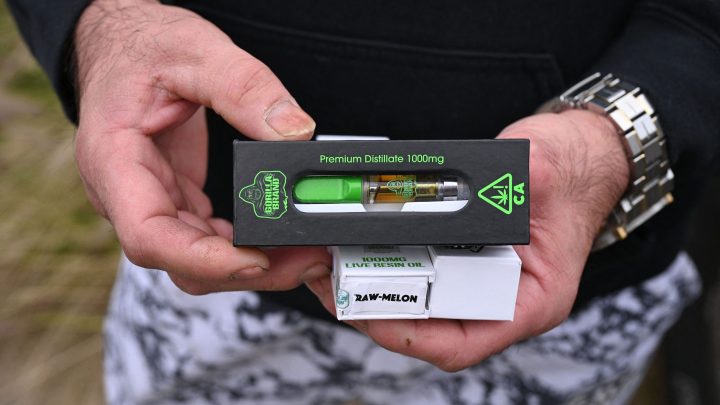
For seniors who use medical cannabis, the expense can be considerable
For seniors who use medical cannabis, the expense can be considerable

At a recent trade fair called Cannastock, in Poughkeepsie, New York, some cannabis vendors shared their home grown, others their company’s extensive line ups.
“We look at it as concierge medicine,” said Jes Feuer, marketing director for Etain, which has four medical cannabis dispensaries in New York.
“We have water-soluble powder, we have lozenges, we have tinctures, we have sprays because a lot of people want these different alternatives to not be smoking,” Feur said.
More than three dozen states have legalized the medical use of cannabis products. But for some patients, it’s not an affordable option. Insurers and Medicare will cover the cost for most FDA-approved medications, but those who chose medical cannabis typically pay for it out of pocket. For seniors especially, paying for their palliative of choice can be a considerable expense.
That includes older customers from the “just say no” generation or those who have respiratory issues. Any of those forms of cannabis can set a customer back more than 50 un-reimbursable dollars, as Feuer is aware.
“We give discounts to veterans, we give discounts to seniors,” Feur said. “We want to help people that want to get off of pharmaceuticals be able to use plant medicine instead.”
Monica Bass is in her late 50s, retired, lives in Mississippi and was born with sickle cell anemia. She tried prescription pain meds but was leery of addiction. She describes her pain as strong enough to make a grown man cry, so she uses cannabis.
“I’ve been to the dispensary, since February, five times to date,” Bass said.
That’s roughly once a month. Bass knows her church members disapprove of her use of cannabis. But she appreciates the benefits — if not the cost. She says she’s spent more than $2,000 on the product so far this year.
Dr. Robert Welch directs the National Center for Cannabis Research and Education at the University of Mississippi. For older consumers who may be on a prescription cocktail, he said that there are additional concerns aside from the financial burden.
Even though the research center has been around for 50 years, Welch explained that there has been little rigorous study that would lead to commodification and standardization for patients.
“Many patients over 50 are on already a whole host of drugs,” Welch said. “And so there could be drug interactions that need to be really monitored closely.”
Add to that the need for human testing with a significant number of older subjects. That takes money and time — two things many seniors don’t have.
There’s a lot happening in the world. Through it all, Marketplace is here for you.
You rely on Marketplace to break down the world’s events and tell you how it affects you in a fact-based, approachable way. We rely on your financial support to keep making that possible.
Your donation today powers the independent journalism that you rely on. For just $5/month, you can help sustain Marketplace so we can keep reporting on the things that matter to you.

















